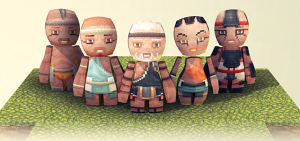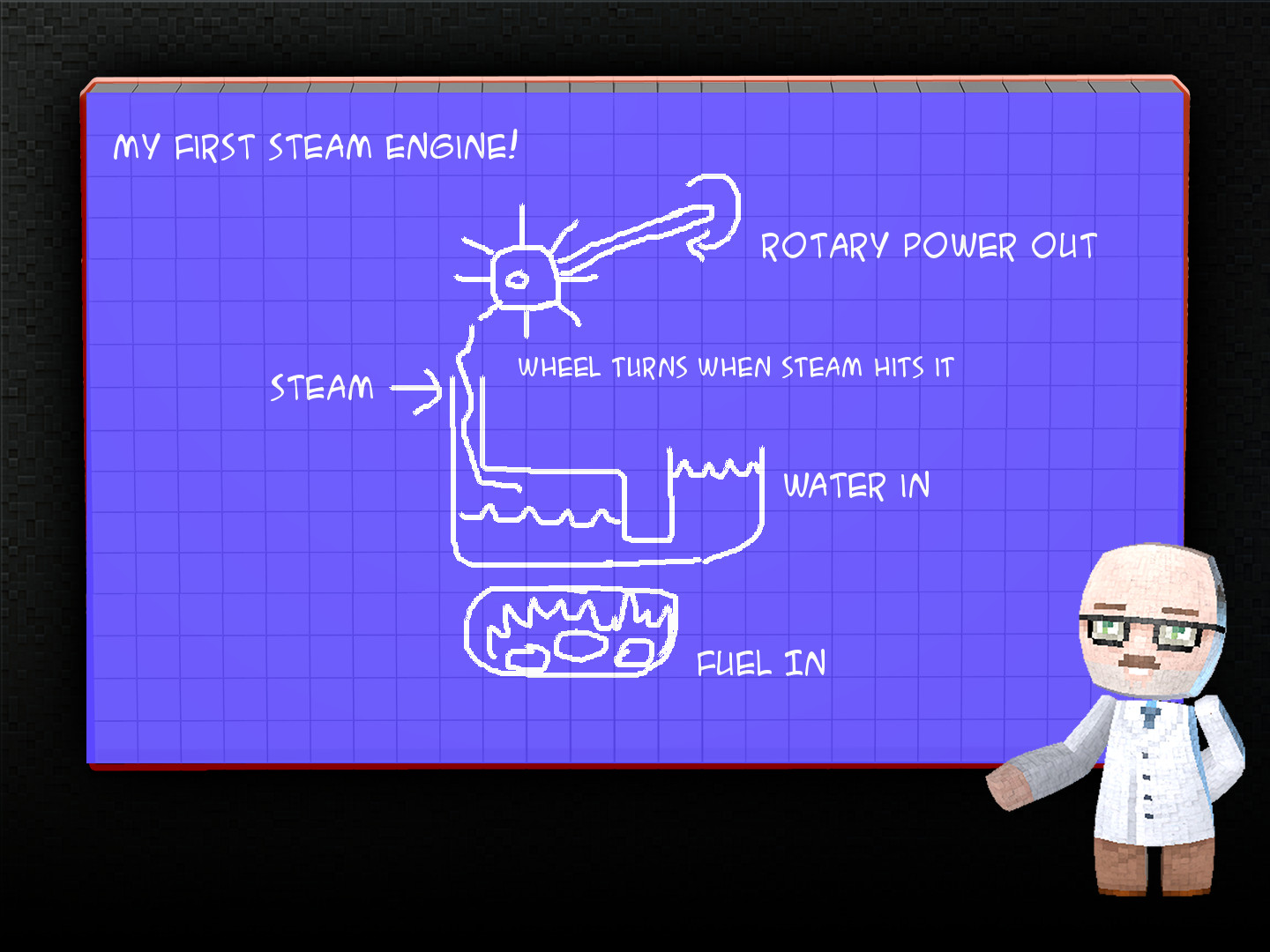This week’s topic involves something more broad and abstract than a specific system in the game: Why would players want to explore the Imagine Nations world? For this series, that question is being asked especially when it comes to doing anything besides destroying the world, or its inhabitants.
Violent games are common not just because of an inherent appeal of violence, but also because computers, for reasons too complex to go into in this short an article, are only good at portraying games that represent physical space, and are really lousy at things like conversations, emotions, or abstract concepts. Hence, games where you just try to get a ball to a goal or shoot things are easier to make than relationship simulators.
Now, Imagine Nations fully embraces the capacity to be a soldier in an FPS-like game, a general in an RTS-like game, or even a survivalist or explorer like a first-person action-RPG, however there is also meant to be this whole rest of the world going on, and we want to ensure that a player has the opportunity to do anything that the NPCs do. Still, we have to answer the question of why a player might want to build a table by hand when they can buy one, instead? How can we make the town interactions – which have to be simulated relationships – something players will want to participate in?
It’s possible to make mini-games, as other games do, by making a task like lock-picking into a spatial logic puzzle. However, this involves both a jarring disconnect from the rest of the game, and also a completely independent set of game rules from the rest of the game.
Instead, we want to turn the game’s challenges into spatial puzzles that players can see and experience easily, and where the different puzzles can actually crash into one another – letting players solve problems of locked doors with diverting a river through a wall.
Blueprint System
Each culture will be able to create and sell specific items that they learn through their development. These items are specific blueprints, or recipes which anyone will be able learn.
The blueprint system offers us a chance to let players actually solve physical problems with physical space without having the computer’s resources constantly tied up doing physics calculations on every moving part.
Think of what’s in a blueprint as a black box, where the box produces an output when you give it a certain input. Rather than simply having a single “steam engine” item that always functions the same, you can go into blueprints to make up your own design on a small scale. The game then figures out the functions, and lets you create core blocks that perform those functions – like taking in coal and burning it at rate x to produce amount of power y – that you can place and reproduce. Because of this, you may well be able to devise more clever devices than what the game gives you by default. This may mean a more efficient engine, or it could mean doing two or more things at once with the same power generated by the reaction. (Turning a shaft conveying power, as well as pulling on a rope, for example.) It may even mean inventing tools and machines we never conceived of making.
We hope to make the blueprint system flexible enough that players can start designing objects like ships and cars with engines they built, themselves, put into a ship or car they designed themselves. These can then be used by NPCs in place of pre-created cars. Players can set up factories that sell these cars, and make a living in-world using their creative (possibly Goldberg-esque) designs to solve practical in-game problems.
Over the next few weeks, we’ll talk about some of the other non-combat roles players can enjoy, and how they’re being made enjoyable.
Please support our crowdfunding campaign on our website. Starting at $15, you can earn special "Backer Access" to tech, alpha and beta versions of the game and access to "Backer's Only Forums"
- Imagine Nations Team




If you guys actually manage to pull all this off, I will personally create a cult to worship you all as gods.
The team is working hard! The first version will be the Stone Age.
This looks interesting! Watching.
Thanks for giving us a look.
Holy ****.
This sounds utterly amazing. Im very much looking forward to this.
Im so excited for this game !